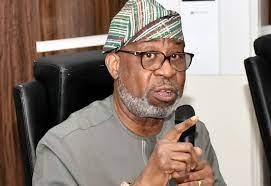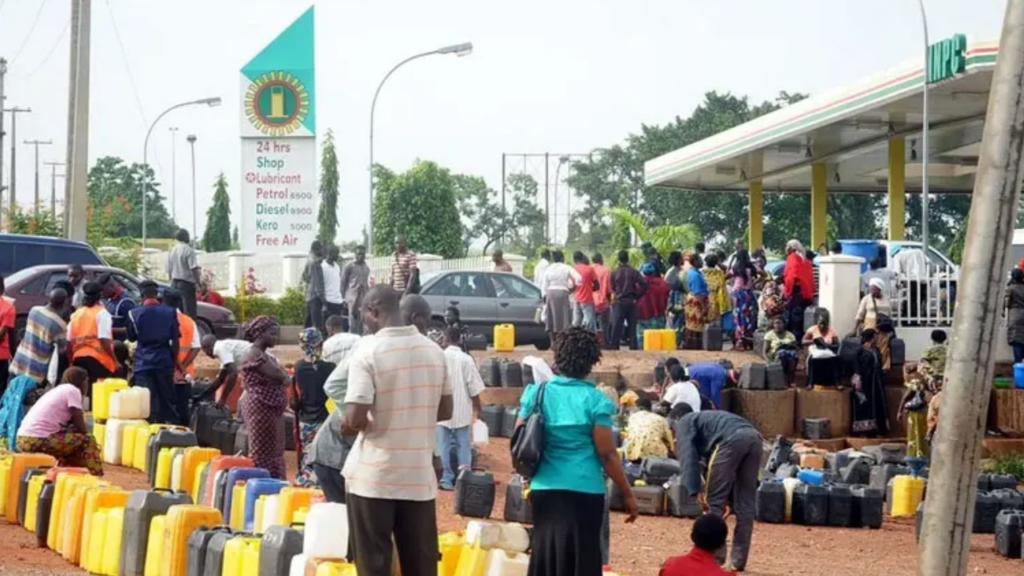Solid Minerals
AfDB excels as premiere institution financing low carbon development in Africa
TUNIS – Multilateral development banks (MDBs) provided almost US $27 billion worldwide, in financing to address the challenges of climate change in 2012, according to the second joint MDB report on climate finance. The report was released today, in line with the commitment by MDBs to enhance the transparency of their investments in climate change mitigation and adaptation.
The report analyzes the financial commitments by the institutions to support climate change mitigation and adaptation, and the information provided has been expanded since the first edition to include better sectoral and regional breakdowns of MDB financing.
Of the total US $27 billion in climate finance, 78 per cent – or over US $21 billion – was dedicated to mitigation, while 22 per cent – or nearly US $6 billion – was applied to adaptation. Of the total commitments, eight per cent – or US $2 billion – came from external resources, such as bilateral or multilateral donors, including the Global Environment Facility and the Climate Investment Funds.
In terms of regional coverage, Sub-Saharan Africa received almost equal amounts of adaptation and mitigation finance, 31% of total adaptation finance and eight per cent of total mitigation finance, respectively, or US $1.8 billion under each area. Responding to the specific needs of African countries, the AfDB mobilized US $1.7 billion of climate mitigation finance – more than any other development institution on the continent – in 2012. This financing will mostly go toward addressing the infrastructural deficit on the continent, largely in the energy sector. The Bank is responding to the need of African nations to diversify their energy sources and increase the level of energy security across the continent by prioritizing investments in clean and renewable energy sources.
Regarding adaptation finance, the AfDB has established itself as the leading provider of climate adaptation finance on the African continent, where for every one dollar of external financing mobilized the AfDB has also contributed over six dollars of its own resources.
From 2011 to 2012 the AfDB increased its climate finance levels by 50 per cent and while climate finance represented 20 per cent of the Banks’ total lending in 2011 it represented roughly 34 per cent of the Banks’ total lending in 2012.
Speaking of the AfDB’s commitments in climate change as reflected in the climate finance levels, Mafalda Duarte, Chief Climate Change Specialist of the Energy, Environment and Climate Change Department, said “We are very proud of our increasing contribution to the momentum being built up in Africa towards development embedded with climate action. In 2012, we have committed US $2.2 billion worth of investments to climate smart development in Africa through financing to be provided for programs in renewable energy, resilient rural, coastal and forest landscapes, and globally scalable knowledge on low-carbon and climate resilient solutions. This is a record we hope to improve upon to better serve African countries and to further cement our position as the premiere African development institution.

TUNIS – Multilateral development banks (MDBs) provided almost US $27 billion worldwide, in financing to address the challenges of climate change in 2012, according to the second joint MDB report on climate finance. The report was released today, in line with the commitment by MDBs to enhance the transparency of their investments in climate change mitigation and adaptation.
The report analyzes the financial commitments by the institutions to support climate change mitigation and adaptation, and the information provided has been expanded since the first edition to include better sectoral and regional breakdowns of MDB financing.
Of the total US $27 billion in climate finance, 78 per cent – or over US $21 billion – was dedicated to mitigation, while 22 per cent – or nearly US $6 billion – was applied to adaptation. Of the total commitments, eight per cent – or US $2 billion – came from external resources, such as bilateral or multilateral donors, including the Global Environment Facility and the Climate Investment Funds.
 In terms of regional coverage, Sub-Saharan Africa received almost equal amounts of adaptation and mitigation finance, 31% of total adaptation finance and eight per cent of total mitigation finance, respectively, or US $1.8 billion under each area. Responding to the specific needs of African countries, the AfDB mobilized US $1.7 billion of climate mitigation finance – more than any other development institution on the continent – in 2012. This financing will mostly go toward addressing the infrastructural deficit on the continent, largely in the energy sector. The Bank is responding to the need of African nations to diversify their energy sources and increase the level of energy security across the continent by prioritizing investments in clean and renewable energy sources.
In terms of regional coverage, Sub-Saharan Africa received almost equal amounts of adaptation and mitigation finance, 31% of total adaptation finance and eight per cent of total mitigation finance, respectively, or US $1.8 billion under each area. Responding to the specific needs of African countries, the AfDB mobilized US $1.7 billion of climate mitigation finance – more than any other development institution on the continent – in 2012. This financing will mostly go toward addressing the infrastructural deficit on the continent, largely in the energy sector. The Bank is responding to the need of African nations to diversify their energy sources and increase the level of energy security across the continent by prioritizing investments in clean and renewable energy sources.
Regarding adaptation finance, the AfDB has established itself as the leading provider of climate adaptation finance on the African continent, where for every one dollar of external financing mobilized the AfDB has also contributed over six dollars of its own resources.
From 2011 to 2012 the AfDB increased its climate finance levels by 50 per cent and while climate finance represented 20 per cent of the Banks’ total lending in 2011 it represented roughly 34 per cent of the Banks’ total lending in 2012.
Speaking of the AfDB’s commitments in climate change as reflected in the climate finance levels, Mafalda Duarte, Chief Climate Change Specialist of the Energy, Environment and Climate Change Department, said “We are very proud of our increasing contribution to the momentum being built up in Africa towards development embedded with climate action. In 2012, we have committed US $2.2 billion worth of investments to climate smart development in Africa through financing to be provided for programs in renewable energy, resilient rural, coastal and forest landscapes, and globally scalable knowledge on low-carbon and climate resilient solutions. This is a record we hope to improve upon to better serve African countries and to further cement our position as the premiere African development institution.”
Business
Nigeria set to boost Naira value and foreign reserve with local gold production, as Tinubu receives gold bar
IN a significant move to strengthen Nigeria’s economy, President Bola Tinubu received a symbolic gold bar on Sunday from the Minister of Solid Minerals Development, Dele Alake.
This gesture marks the commencement of the National Gold Purchase Program (NGPP), aimed at boosting the naira’s value and enhancing the country’s foreign reserves.
Minister Alake expressed gratitude to President Tinubu for his support of reforms in the solid minerals sector.
He highlighted that the NGPP, which involves sourcing gold from artisanal and small-scale miners and refining it to meet the London Bullion Market Association’s Good Delivery Standard, will substantially contribute to Nigeria’s economic stability.
Alake stated “This initiative will significantly increase our foreign reserves and strengthen the naira. The refined gold will be supplied to the Central Bank of Nigeria, marking a crucial step in our economic strategy.”
The presentation also underscored the first commercial transaction under the NGPP, establishing a centralized gold purchasing system that integrates small-scale miners, cooperatives, and production units across the nation.
This program is expected to provide a structured market for gold, fostering economic growth and stability.
He said, “The successful completion of the first commercial transaction clearly demonstrates the National Gold Purchase Program’s effectiveness. It has increased the nation’s foreign reserves assets and shown that using the Nigerian Naira to purchase a liquid asset traded in United States Dollars, such as gold, is a viable strategy. This transaction has also underscored the potential of the National Gold Purchase Program to enhance fiscal and monetary stability.”
Alake added that the initial commercial transaction under the program resulted in a +US$5 million boost in Nigeria’s foreign reserve assets.
The transaction involved refining over 70 kilograms of gold to meet the London Bullion Market quality standard and aggregating locally mined gold, thereby infusing approximately NGN6 billion into the rural economy.
President Tinubu expressed appreciation for the Ministry’s accomplishment in advancing the government’s goal of economic diversification by acknowledging and displaying the symbolic gold bar
Solid Minerals
FG Fingers Foreigners Sponsoring Banditry For Illegal Mining

The Nigerian Government has threatened to come down heavily on foreigners sponsoring bandictory as a way of sustaining illegal mining activities in parts of the country.
The warning was handed down in Abuja by Minister, Solid Minerals Development, Dr Oladele Alake, while receiving a delegation of the Nigeria-China Chamber of Mines led by its National President, Dr. Olugbenga Ajala.
Details of these were contained in a statement released by Head, Press & PR, Ministry of Solid Minerals Development, Alaba Balogun over the weekend.
The statement cited, Dr Alake, thus, “The government will come down firmly on these unscrupulous foreign operators sponsoring banditry to perpetrate illegal mining: let me use this medium to appeal through you to tell those sponsors to desist or face the full wrath of the law.”
According to Dr Alake, the Ministry is committed to establishing a multi-agency task force that will end the activities of illegal miners and their collaborators.
The Minster made it clear that the FG had given illegal miners a 30-day-ultimatum to legitimise their businesses, quit Nigeria or incur the wrath of the law.
According to him, this will help “to streamline and structure the Small-Scale Artisanal Miners for maximum yield to the Federal Government.”
The delegation paid a courtesy call on the Minsiter at the Ministry’s headquarters in Abuja.
Energy
Fuel Scarcity: Govt Yet to Increase Pump Prices – NMDPRA

By Edozie Obasi-Eze
Amidst heightening uncertainties in the domestic petroleum products market characterised by scarcity and irregular pricing, the Nigerian Midstream and Downstream Petroleum Regulatory Authority (NMDPRA) has declared that there’s no intention to review pump prices upwards.
This was contained in an advisory issued by General Manager, Corporate Communications, NMDPRA, Kimchi Apollo.
He stated that the Nigerian National Petroleum Corporation Limited (NNPCL) had imported PMS with current stock levels sufficient for 34 days.
In an attempt to address panic buying and speculations which have seen price of Premium Motor Spirit (PMS) oscillate between N180-N250 in the Lagos area, Apollo assured that there was enough quantity of the product in the country already.
He said, “Consequently, marketers and the general public are advised to avoid panic buying, diversion of products and hoarding.
“In keeping with the Authority’s responsibilities as outlined in the Petroleum Industry Act (PIA), the Authority assures the public that it would continue to monitor the supply and distribution of petroleum products nationwide, especially during this holiday season.”











